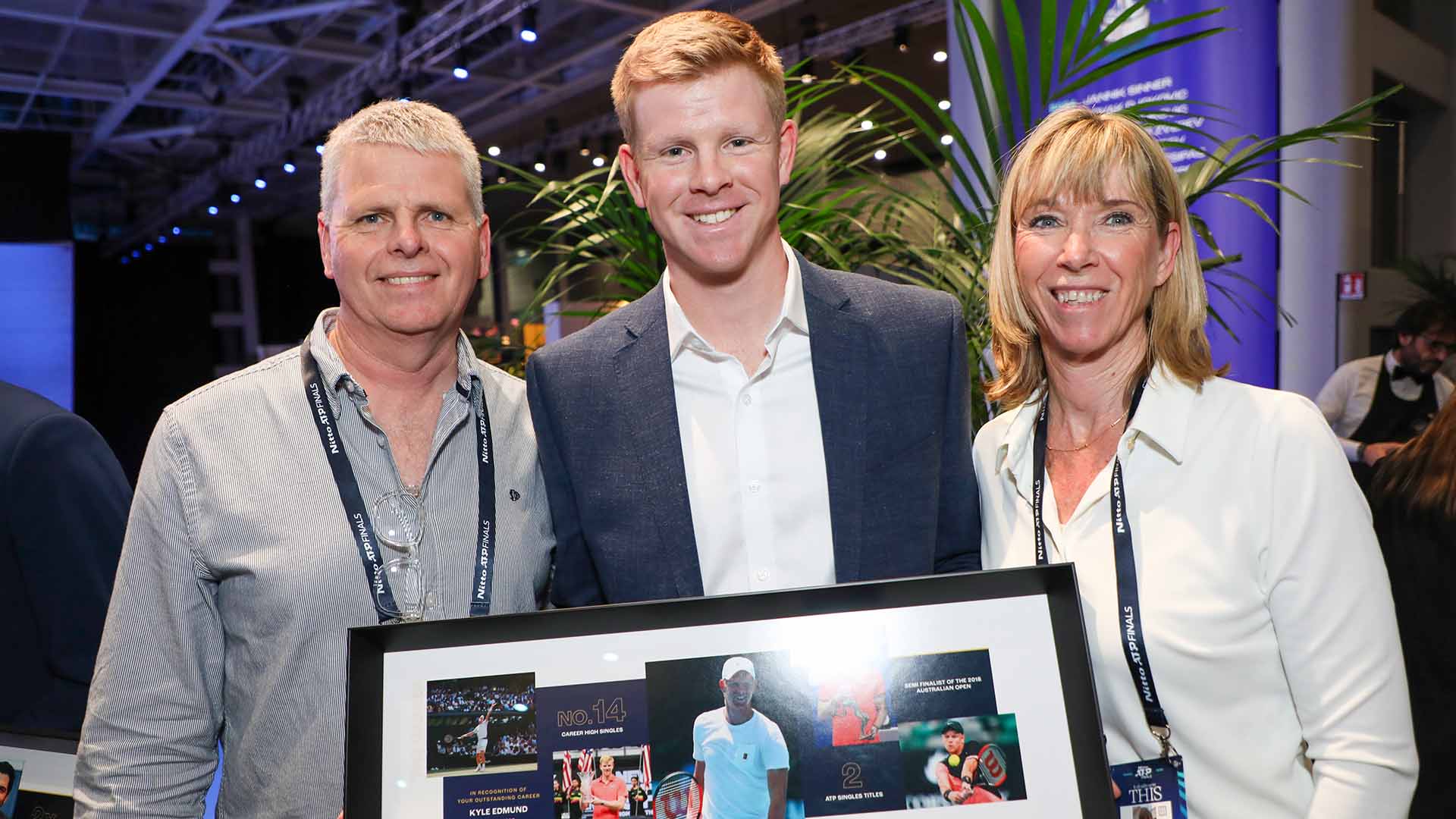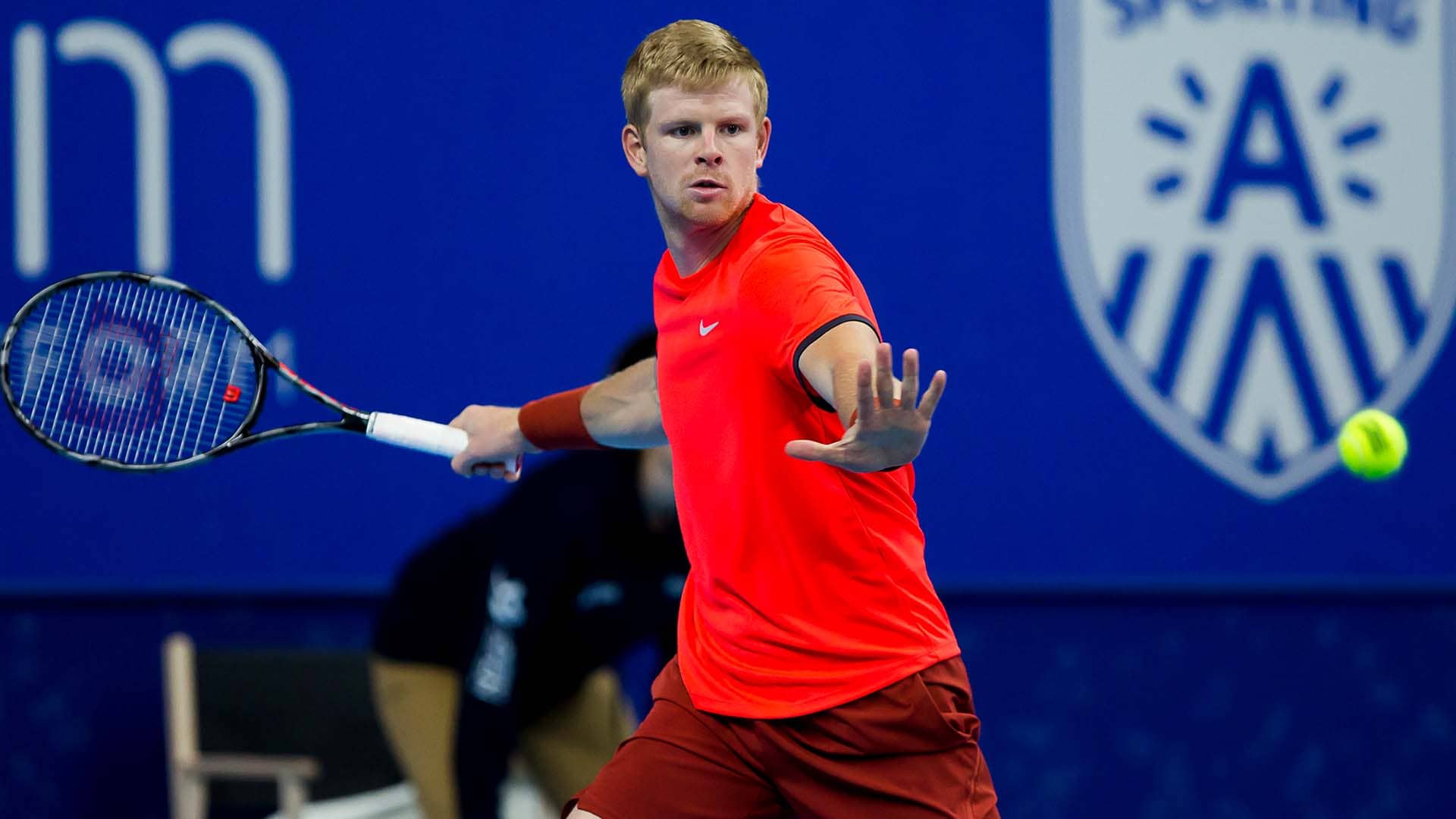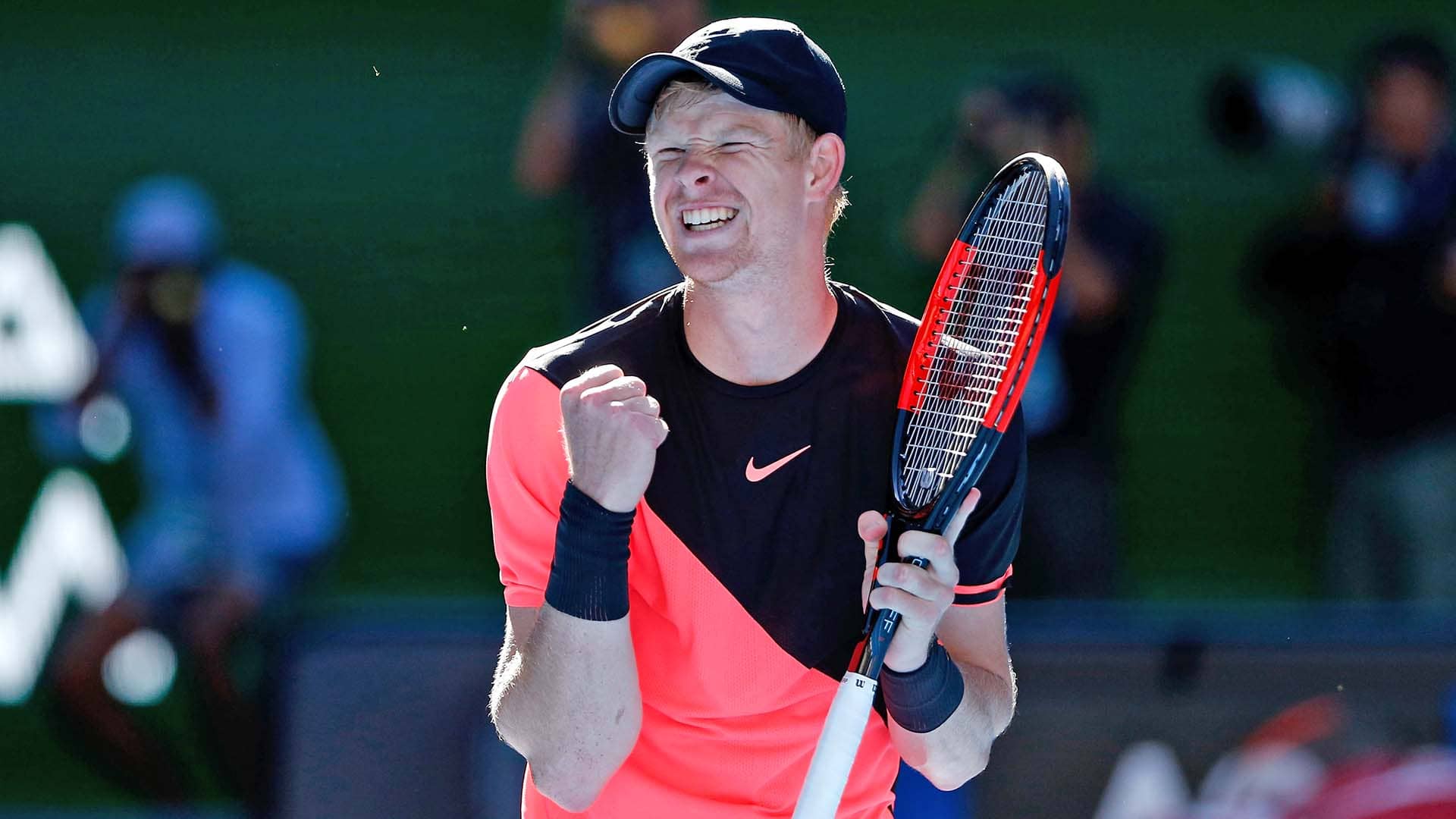

The latter stages of Kyle Edmund’s career may have been hampered by injuries, but the former No. 14 in the PIF ATP Rankings is not ready to let the tough moments dominate as he reflects on his 13-year professional career.
The 30-year-old Briton announced his retirement in August after a series of physical issues that included one surgery a year in 2020, 2021, and 2022. Although his retirement decision is just three months old, Edmund already feels happy to focus on his experiences as an elite performer on the world stage.
“You definitely look back with more positivity [with time],” he told ATPTour.com in Turin, where he and seven other recently retired ATP Tour stars were honoured in a special ceremony on Friday night at the Nitto ATP Finals. “For me, when I was ending [my career], it was a bit of a negative because something is coming to an end that you are so passionate about and so invested in. But you can look back and enjoy those things.”
Edmund turned pro in 2012, the year that Andy Murray ended Great Britain’s 76-year wait for a men’s singles major champion at the US Open. Within three years, Edmund was making more British tennis history alongside Murray in the Davis Cup: the 20-year-old made his debut for his country in the 2015 final against Belgium, just three months after he broke the Top 100 for the first time, as Great Britain won its first title for 79 years.
Renowned for his huge forehand, which combined raw power with vicious whipped topspin, Edmund went on to win two ATP 250 titles — in Antwerp in 2018 and New York in 2020 — while his standout moment at the majors came at the 2018 Australian Open. He defeated then-World No. 12 Kevin Anderson and No. 3 Grigor Dimitrov en route to the semi-finals in Melbourne, where he fell to Marin Cilic.
“In terms of achievements, definitely Davis Cup,” said Edmund, when asked what he considers to be his career highlights. “Also my first Tour title, at the end I was very emotional, because that was a goal I had, to win a Tour event. Then the run in Australia. Those are the ones that stick out for me.
“Then there are little ones like playing at Wimbledon as a British kid, playing for my country, and obviously the Olympics as well. Those are things that actually, looking back, are really special moments that you will always have. They don’t go away. So it’s been nice to reflect in that way.”

Edmund in action against Gael Monfils en route to the 2018 Antwerp title. Photo Credit: Kristof Van Accom/AFP via Getty Images
Even in spite of his injury struggles, Edmund remained competitive right up until his retirement. In his final professional tournament, a grass-court ATP Challenger Tour event in Nottingham in July, he reached the final. Yet the foundations had already been laid for the Yorkshireman’s decision to end a career in which he racked up 119 tour-level singles wins, according to the Infosys ATP Win/Loss Index.
“There was no specific thing, but definitely various things that just sort of added up,” explained Edmund, when asked about the main reason for retiring when he did. “As a player you are always fighting in terms of trying to get through and you just have that fighting mentality. That’s what I felt I was doing a lot with my injury and obviously physically there is a toll on your body with all the surgeries.
“Mentally as well you’re always trying to push through the rehab, and once you get through the rehab you’re trying to play again and win. I was coming back in terms of I’d been playing for a period of time, but every now and again I would get something else that came up that would just stop me for two or three months.”

Edmund celebrates after defeating Grigor Dimitrov in the 2018 Australian Open quarter-finals. Photo Credit: Paul Rovere/Getty Images
Deciding to retire is a difficult moment in any athlete’s career, no matter their achievements or status, but Edmund is ready to use his experiences on the tennis circuit to inform the chapter of his life.
“You do realise and learn that it is a privilege to be a professional athlete at the highest level, when you don’t have it,” said Edmund, who has enjoyed some time off and is now considering his next moves, with a preference to stay working in sport. “Looking back, I’ve always said that subconsciously maybe you don’t realise, but at a professional level when you are on court and you are not in a team, you are sort of the leader of yourself.
“You’re making decisions for yourself all the time, which are qualities that help you in life, that take you onto the next thing. As I finish, I realise that what I’ve been exposed to will help me. You’ve got to earn your way there, but when you are on the Tour playing these types of events, it is very rewarding. You can see that with the occasions you are playing in.”